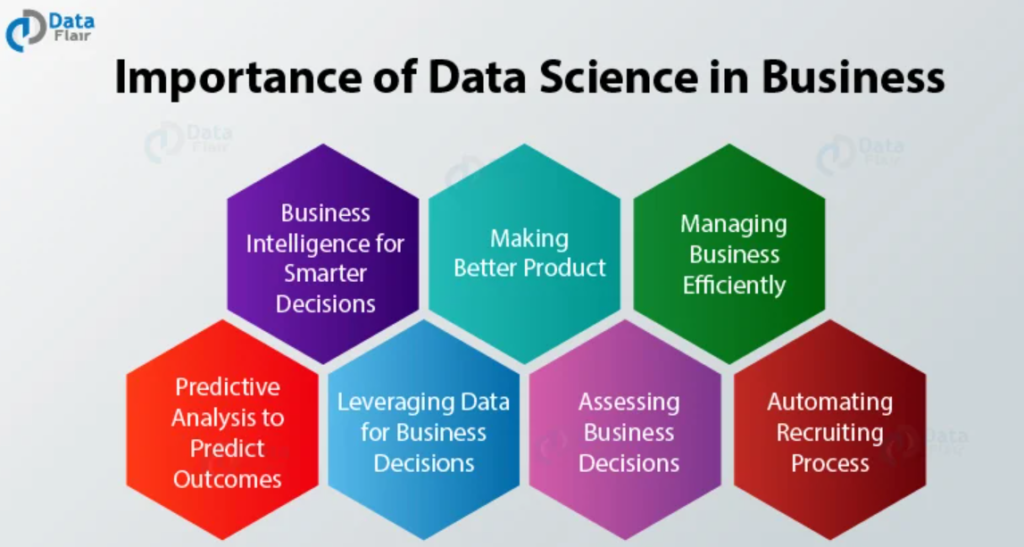Defining Business and Science: Start with the conception of what precisely is business and science, apart from the general knowledge of the terms. Business may be defined as the activity of acquiring and utilising resources through the deployment of appropriate strategies for the purpose of producing value and exchanging things, whilst science is systematic understanding of the physical and the natural world using experiments, observation and formulation of theories.
Establishing the Connection: Suggest that, although business officially pertains to the sphere of social activity, it is intensely scientific in its orientation. Both fields entail problem-solving, and data analysis and call for a systematic approach to getting thing done.
Business as a Science: Key Concepts
- The Role of Data and Analytics: Science can be defined by the accumulation and analysis of information. In business, data analysis is used in decision making, market comparison, prediction of customer behavior, and even financial purposes. Business today are greatly informed by data and as such, doing business is quite akin to conducting science as a method.
- Research and Development (R&D): So in the same way that science constantly expands the horizon of human understanding of the world: business entails the research and development of ideas and technologies which are then introduced to the market to enhance products or services. The overall business using hypotheses testing procedures , analysing market requirements and developing research to advance new technologies or processes.
The Scientific Method in Business: This can be best explained by applying scientific approach to decision making process where decisions are made based on formulated hypothesis, by carrying experiments for instance market tests, getting results and coming up with better strategies. This systematic approach fits business into scientific methods.
Business As an Applied Science
- Application of Scientific Disciplines: It has been developed from disciplines arising from the domain of sciences like psychology (market behavior), economics (demand and supply), physics (organizational productivity), and biology (people behavior at the workplace). For example:
- Economics: Economics is widely used by businesses in decision making including; forecasting trends in the business markets, determination of business prices and even the effective management of business resources.
- Psychology: An analysis of consumer behavior and attitude assists a business in the marketing mix, product development and customer relations.
- Technology and Engineering: In this competition, technology-based organisations utilise engineering knowledge and science accomplishment to create and innovate.
- Business Models and Systems Theory: One of the concepts that belongs to the so-called systems paradigm originating from several scientific branches, comes from systems theory and is frequently applied in business to explain organizations in terms of systems. A business is viewed as having subunits that are interrelated and are therefore required to in synchrony for it to succeed. This is on a similar par as how biologists examine ecosystems or some biological systems at that.
Innovation and technological development has a major role in achieving organizational goals.
- Technological Disruption and Science: Technologies developed reflect improvements in science and technology. As the business competition increases, one needs to adopt any technological advancement for the firm to remain relevant. Any organization that adopts new science idea like artificial intelligence, or biotechnology or green energy, among others, stands at frontier of subject industry shifts.
- Innovation as a Scientific Process: That is why innovation in business is frequently a derivative of attempts at scientific advancement. For instance, organizations lending money in areas such as biotechnology or renewable power are pursuing advanced science to provide answers to challenging issues; they and are creating technology and driving enterprise at the same time.
Business as a field of Study in Academia
- Business and Academia: In higher education, business schools use scientific research. It should also be noted that in their work, professors and researchers operating in the field of business frequently share their results in academic journals; in this case, their articles are reviewed by their peers as is required by the best scientific practices. In turn, writing on the development of business theories and management practices are closely related to the findings of economical, social, psychological, and various other sciences.
- Behavioral Sciences in Business: Human behavior being one of the fields of study in social sciences, has a great impact in business. Knowledge on how people make decision, develop attitude, and work in groups can enhance organisational process such as management, marketing, and organisation structure. This use of knowledge then to include it in business strategies is anyway the function of science in business.
The Interaction of Science and Business Management
- Predictive Analytics and Forecasting: Today, most organizations apply mathematical methods from science to develop predictive models and make forecasts about further developments, supply chain management, and customer behavior. These tools are based on modelling and these models are arrived at from scientific methods.
- Optimization and Efficiency: Many business methods are oriented on the management of business processes and resources and correspond to optimization tasks, for example, the minimization of expenses for production waste, increasing productivity through certain technology advancements.
Conclusion
Summary of Key Points: Summarize the main techniques of direct linkage stated herein which indicate that business is intertwined with science by the use of data analysis, research, development, scientific innovations and business scientific application in different streams.
Future Directions: On the same note, stress on the increasing relevance of synergy between business and science. As technology increases in the future business will employ science to address their issues, needs, and respond to competition.
Final Thought: End with the idea that it may be appropriate to suggest that although business might be different in some ways from the traditional sciences, it clearly gains from a scientific approach, and therefore, is properly part of the larger scientific project.
